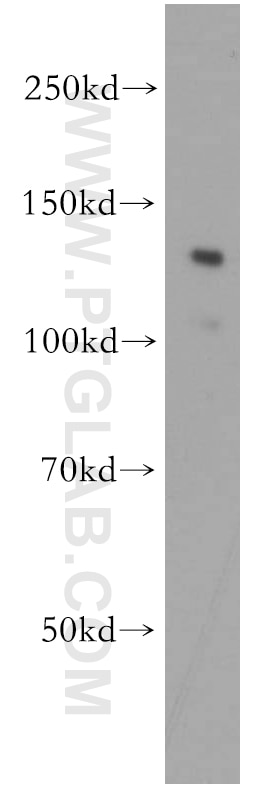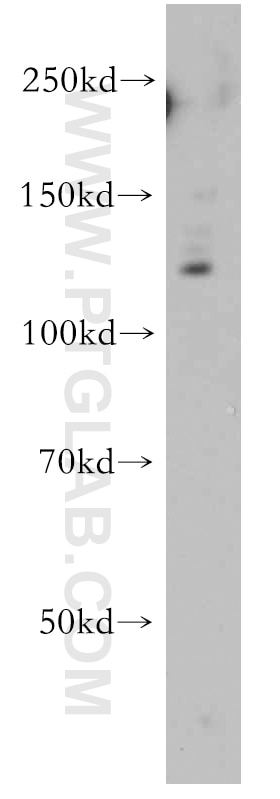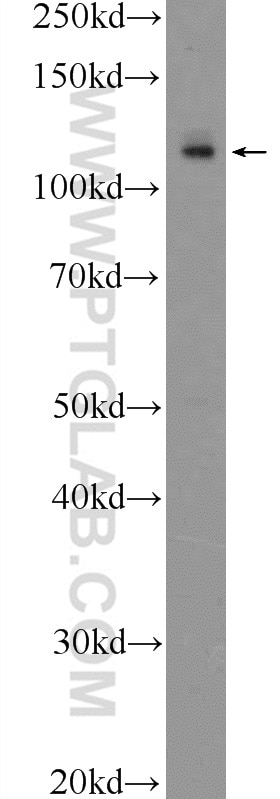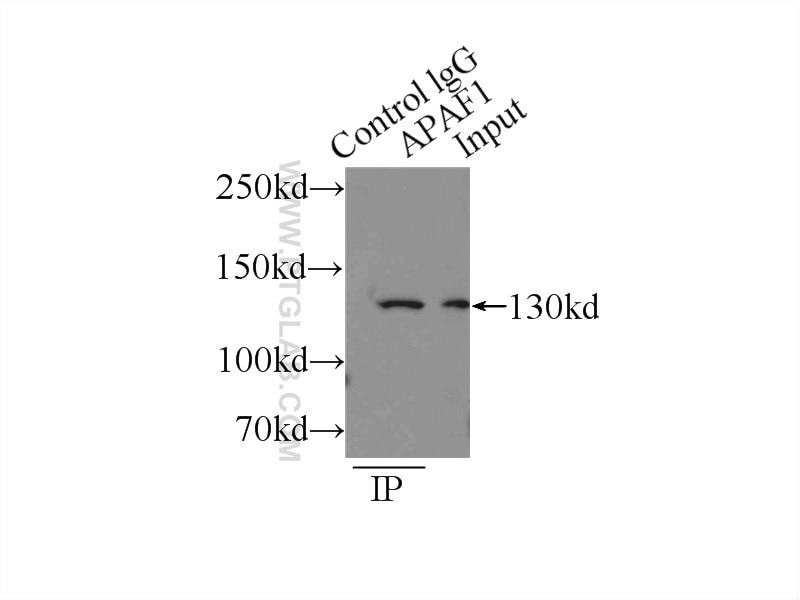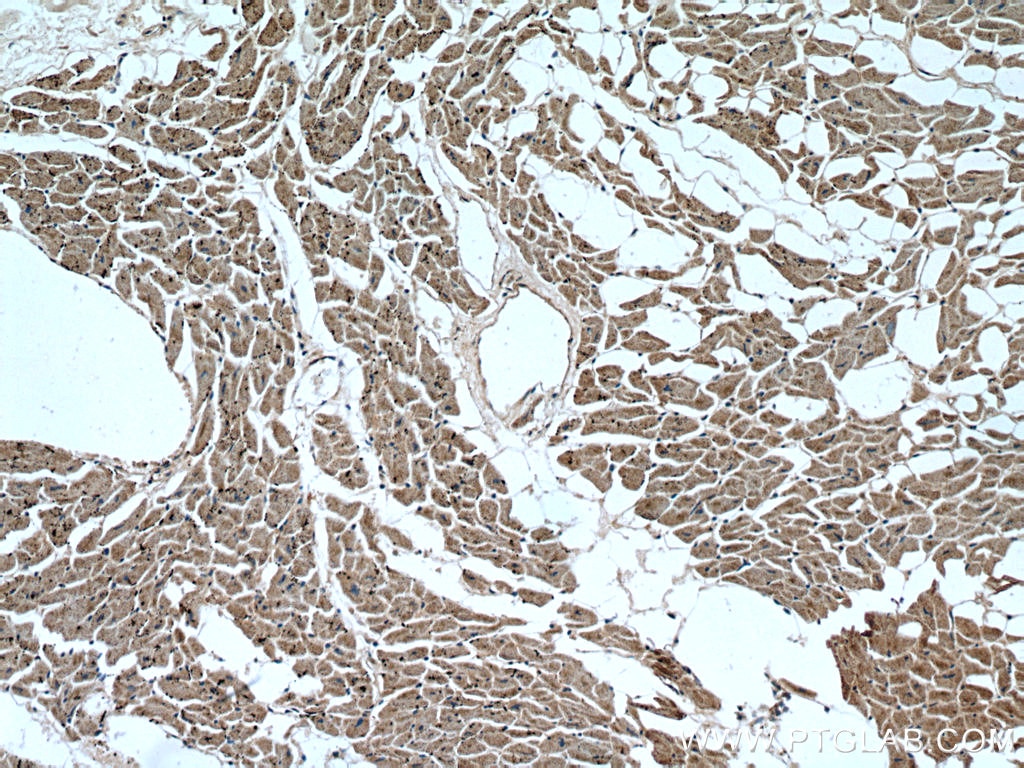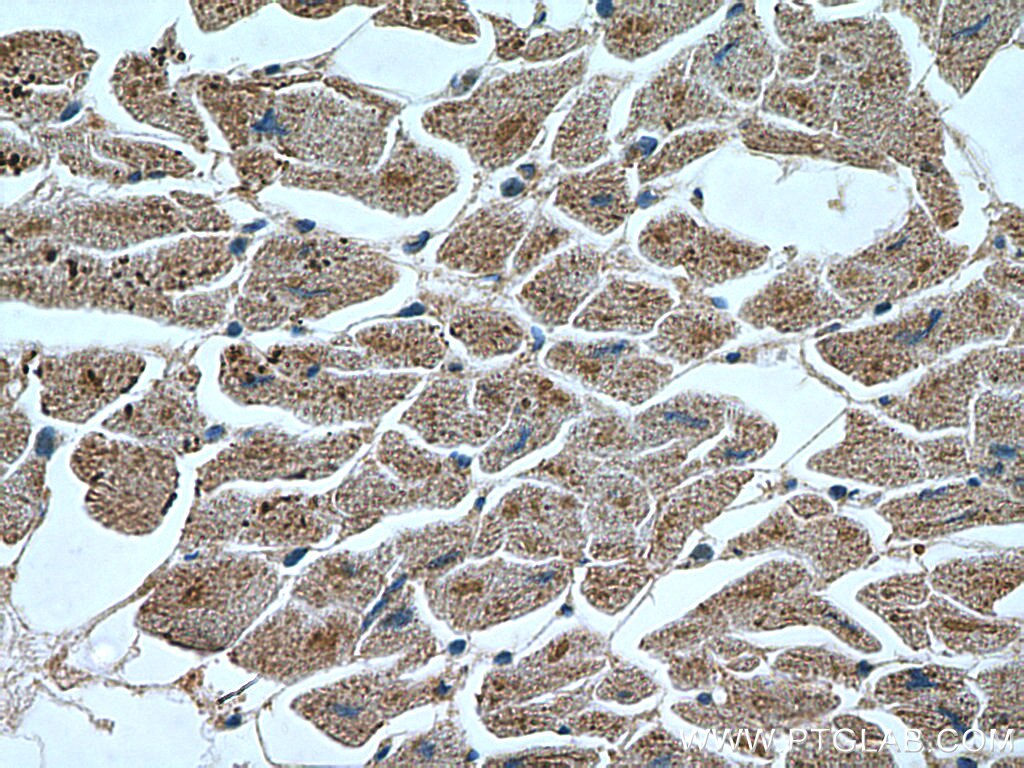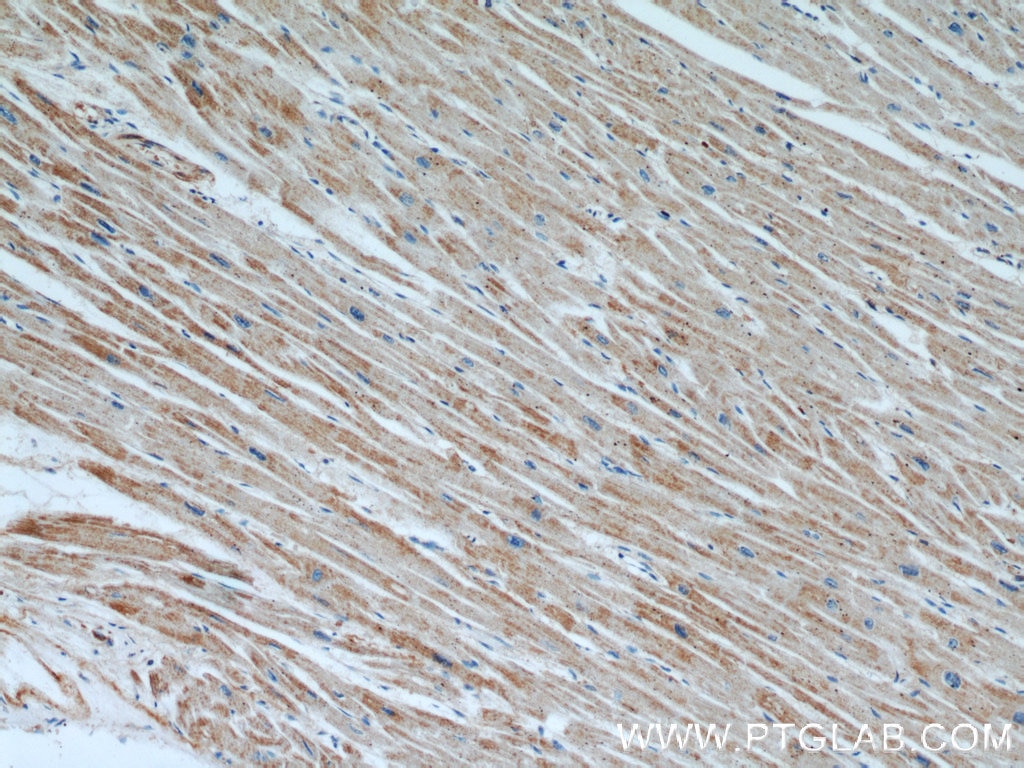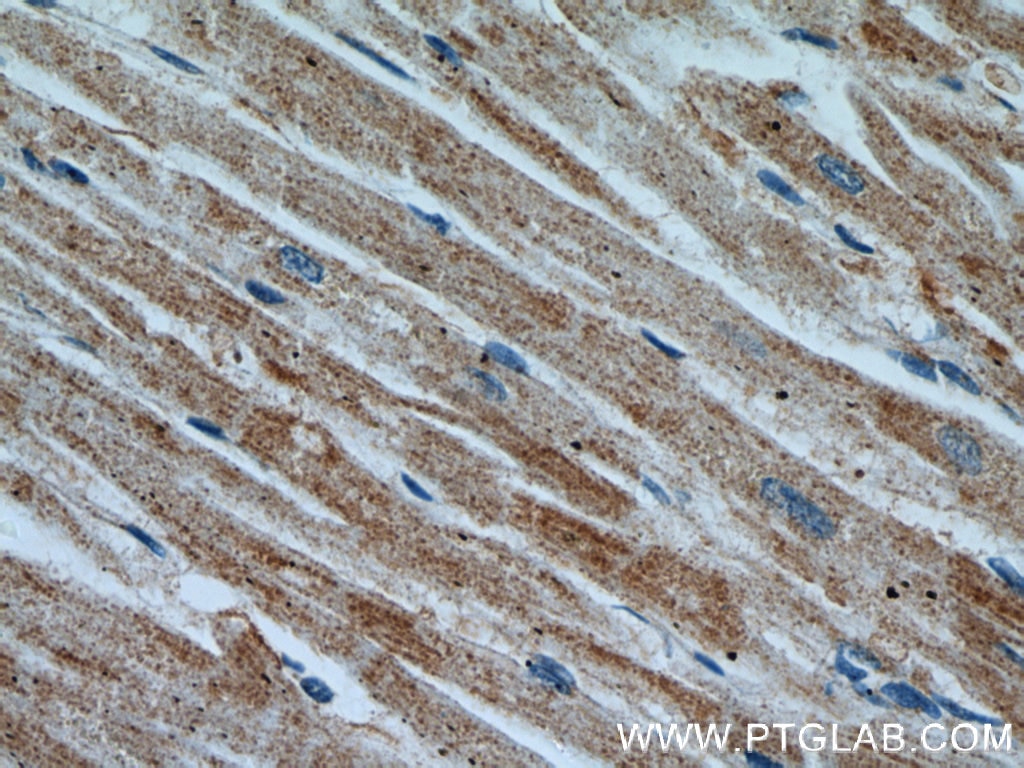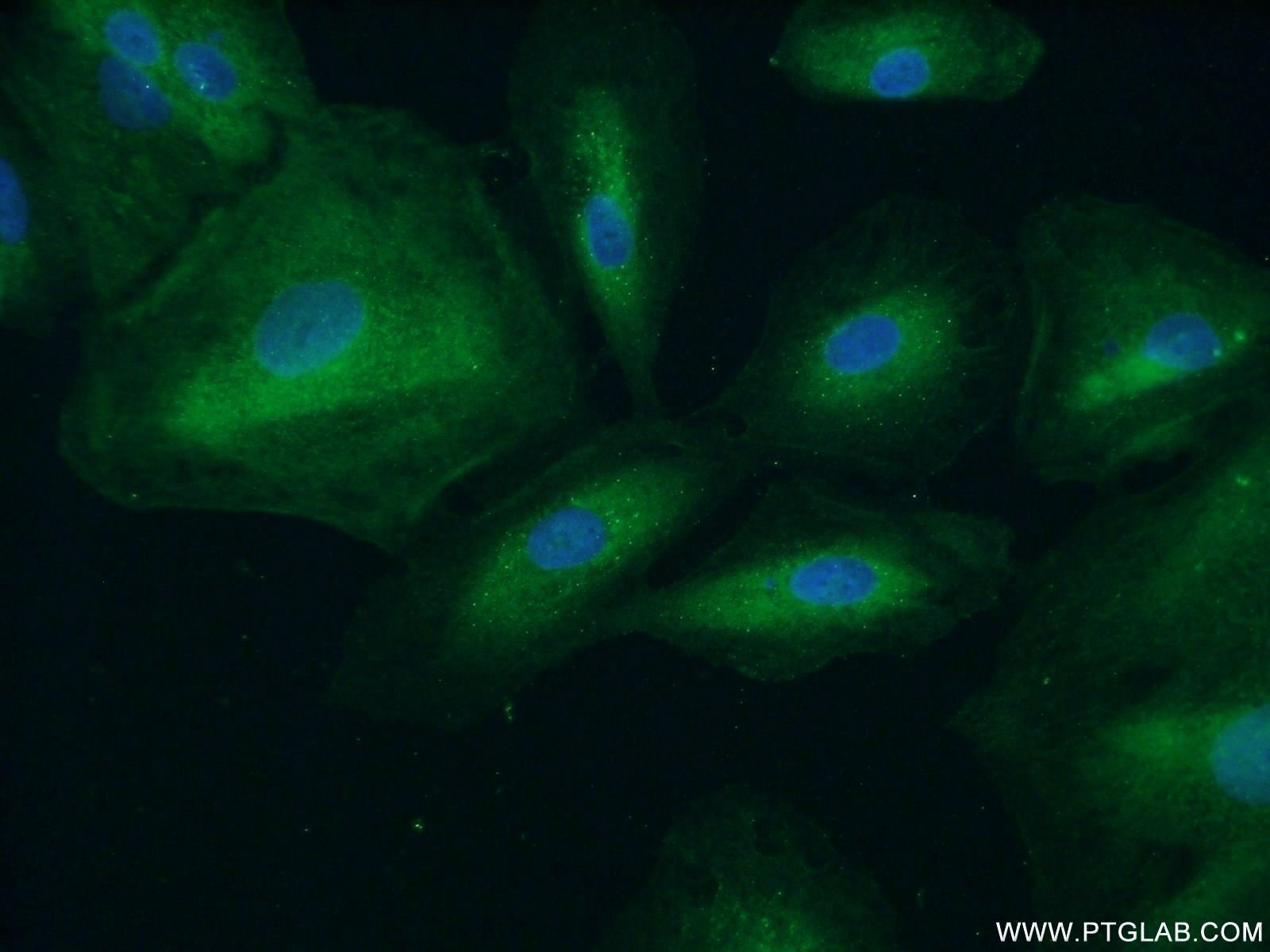Tested Applications
| Positive WB detected in | HEK-293 cells, A549 cells, COLO 320 cells |
| Positive IP detected in | HEK-293 cells |
| Positive IHC detected in | human heart tissue Note: suggested antigen retrieval with TE buffer pH 9.0; (*) Alternatively, antigen retrieval may be performed with citrate buffer pH 6.0 |
| Positive IF/ICC detected in | A549 cells |
Recommended dilution
| Application | Dilution |
|---|---|
| Western Blot (WB) | WB : 1:500-1:2000 |
| Immunoprecipitation (IP) | IP : 0.5-4.0 ug for 1.0-3.0 mg of total protein lysate |
| Immunohistochemistry (IHC) | IHC : 1:50-1:500 |
| Immunofluorescence (IF)/ICC | IF/ICC : 1:20-1:200 |
| It is recommended that this reagent should be titrated in each testing system to obtain optimal results. | |
| Sample-dependent, Check data in validation data gallery. | |
Published Applications
| KD/KO | See 1 publications below |
| WB | See 43 publications below |
| IHC | See 3 publications below |
| IF | See 2 publications below |
Product Information
21710-1-AP targets APAF1 in WB, IHC, IF/ICC, IP, ELISA applications and shows reactivity with human, rat samples.
| Tested Reactivity | human, rat |
| Cited Reactivity | human, mouse, rat |
| Host / Isotype | Rabbit / IgG |
| Class | Polyclonal |
| Type | Antibody |
| Immunogen |
CatNo: Ag16336 Product name: Recombinant human APAF1 protein Source: e coli.-derived, PGEX-4T Tag: GST Domain: 899-1248 aa of BC136532 Sequence: TSSDDQTIRLWETKKVCKNSAVMLKQEVDVVFQENEVMVLAVDHIRRLQLINGRTGQIDYLTEAQVSCCCLSPHLQYIAFGDENGAIEILELVNNRIFQSRFQHKKTVWHIQFTADEKTLISSSDDAEIQVWNWQLDKCIFLRGHQETVKDFRLLKNSRLLSWSFDGTVKVWNIITGNKEKDFVCHQGTVLSCDISHDATKFSSTSADKTAKIWSFDLLLPLHELRGHNGCVRCSAFSVDSTLLATGDDNGEIRIWNVSNGELLHLCAPLSEEGAATHGGWVTDLCFSPDGKMLISAGGYIKWWNVVTGESSQTFYTNGTNLKKIHVSPDFKTYVTVDNLGILYILQTLE Predict reactive species |
| Full Name | apoptotic peptidase activating factor 1 |
| Calculated Molecular Weight | 1248 aa, 142 kDa |
| Observed Molecular Weight | 130-142 kDa |
| GenBank Accession Number | BC136532 |
| Gene Symbol | APAF1 |
| Gene ID (NCBI) | 317 |
| RRID | AB_10859252 |
| Conjugate | Unconjugated |
| Form | Liquid |
| Purification Method | Antigen affinity purification |
| UNIPROT ID | O14727 |
| Storage Buffer | PBS with 0.02% sodium azide and 50% glycerol, pH 7.3. |
| Storage Conditions | Store at -20°C. Stable for one year after shipment. Aliquoting is unnecessary for -20oC storage. 20ul sizes contain 0.1% BSA. |
Background Information
APAF1, also named as Apoptotic protease-activating factor 1 or KIAA0413, is a 1248 amino acid protein, which contains one CARD domain, contains one NB-ARC domain and Contains fifteen WD repeats. APAF1 localizes in the cytoplasm and is widely expressed in many tissues. Highest levels of expression is in adult spleen, peripheral blood leukocytes, in fetal brain, kidney and lung. Oligomeric APAF1 mediates the cytochrome c-dependent autocatalytic activation of pro-caspase-9 (Apaf-3), leading to the activation of caspase-3 and apoptosis.
Publications
| Species | Application | Title |
|---|---|---|
Theranostics Pro-Inflammatory CXCR3 Impairs Mitochondrial Function in Experimental Non-Alcoholic Steatohepatitis. | ||
Oxid Med Cell Longev Apoptotic Protease Activating Factor-1 Inhibitor Mitigates Myocardial Ischemia Injury via Disturbing Procaspase-9 Recruitment by Apaf-1. | ||
Mol Ther Nucleic Acids LNC473 Regulating APAF1 IRES-Dependent Translation via Competitive Sponging miR574 and miR15b: Implications in Colorectal Cancer. | ||
Cell Biol Toxicol Inhibition of ER stress attenuates kidney injury and apoptosis induced by 3-MCPD via regulating mitochondrial fission/fusion and Ca2+ homeostasis. | ||
Front Cell Dev Biol Antagonizing CDK8 Sensitizes Colorectal Cancer to Radiation Through Potentiating the Transcription of e2f1 Target Gene apaf1. | ||
Cells FUT2 Facilitates Autophagy and Suppresses Apoptosis via p53 and JNK Signaling in Lung Adenocarcinoma Cells |

